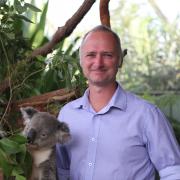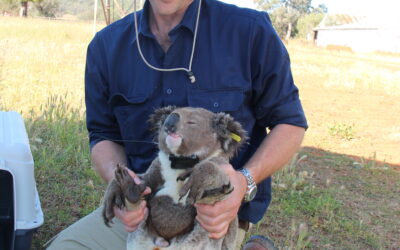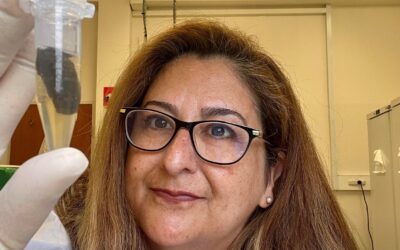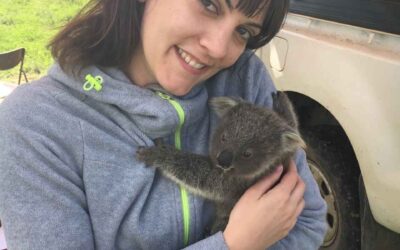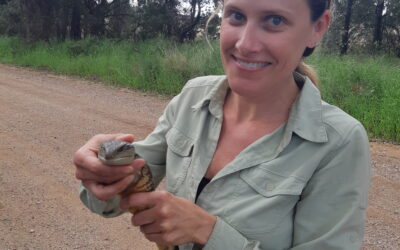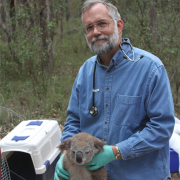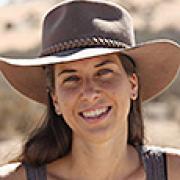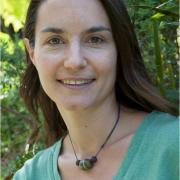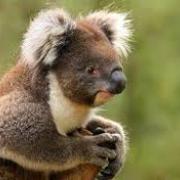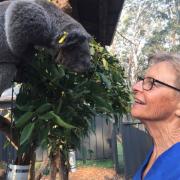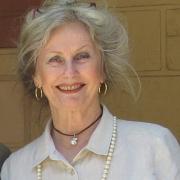Our People
Search Resources
Koala Health Hub Teams
PROFESSOR DAMIEN HIGGINS (KHH LEAD)
Damien’s main area of research interest is the ecology and pathology of wildlife diseases, particularly the impact of human activities on the host-pathogen relationship of diseases in fragmented populations of two threatened species - the koala and the Australian...
PROFESSOR MARK KROCKENBERGER
Mark Krockenberger is Professor of Veterinary Pathology at the University of Sydney who has been working with koalas for the past 20 years. He is a Fellow of the Australian and New Zealand College of Veterinary Scientists in Veterinary Anatomical Pathology and a...
DR ANDREA CASTERIANO (TECHNICAL OFFICER)
Andrea graduated with a PhD in microbiology from the University of Sydney in 2014, joining the Koala Health Hub later that year. She oversees the operational aspects of the KHH’s diagnostic services, including the real-time PCR tests for Chlamydia and maintaining our...
DR VALENTINA MELLA, POSTDOCTORAL RESEARCH FELLOW
Valentina is a Research Fellow in the Sydney School of Veterinary Science at the University of Sydney. Valentina’s research aims to implement practical solutions to achieve effective long‐term conservation management actions to help koalas. She currently leads a...
DR BELINDA WRIGHT, WIRES POSTDOCTORAL RESEARCH FELLOW
Belinda’s PhD involved using genomic techniques to investigate disease resistance in Tasmanian devils and also to inform population management of the species. Belinda has gone on to apply genomics to conservation questions in Koalas and Bilbies. With a strong interest...
Koala Health Hub
Previous Advisory Committee
PROFESSOR DAVID PHALEN
David is Professor in Exotic Animal Medicine and Surgery and Wildlife Health and Conservation. He joined the University of Sydney as the Director of the Wildlife Health and Conservation Centre and the Avian Reptile and Exotic Pet Hospital in 2006 and has taught exotic...
Dr CAROLINE MARSCHNER
Caroline graduated in Veterinary Medicine at the University of Vienna, Austria, in 2012 and has followed her passion for wildlife to Vancouver Aquarium, Abu Dhabi Falcon Hospital and also the Avian Reptile and Exotic Pet Hospital at the University of Sydney. She...
DR TIGGY GRILLO, WILDLIFE HEALTH AUSTRALIA
Tiggy has been a member of the Koala Health Hub Advisory Committee since the inception of the Hub in 2014 and has been working for Wildlife Health Australia since May 2009. Tiggy obtained her veterinary degree in Glasgow, Scotland in 1999. She returned to Glasgow...
VICKII LETT, WIRES
Vickii has been a member of the NSW Wildlife Information, Rescue and Education Service (WIRES) since 1987 and is currently the Koala Coordinator for the WIRES Large Mammal Team where she enjoys the opportunity to exchange information with carers, wildlife...
CHEYNE FLANAGAN, KOALA PRESERVATION SOCIETY OF AUSTRALIA
Following decades of voluntary work in wildlife rehabilitation while working with cattle sheep and horses, Cheyne moved to full time wildlife work in the 90's and has been employed by the Port Macquarie Koala Hospital for the last 18 years as the Clinical...
LORRAINE VASS, FRIENDS OF THE KOALA
Lorraine was the Koala Care Community representative on the Koala Health Hub Advisory Committee during 2015. She served 15 terms as President of Friends of the Koala in the Northern Rivers region of NSW. She has been a great champion for koalas and Friends of the...
KERRY THOMSON (COMMUNICATIONS OFFICER)
Kerry has an Honours Bachelor of Science at the University of Guelph and a Bachelor of Education at the University of Western Ontario and is now a veterinary student at the University of Sydney, with interests in zoological medicine, surgery and diagnostic imaging....
Latest Scientific Publications
Habitat in flames: How climate change will affect fire risk across koala forests.
https://doi.org/10.1016/j.eti.2023.103331https://doi.org/10.1016/j.eti.2023.103331
Cutaneous and Respiratory Lesions in Bushfire-Affected Koalas.
https://doi.org/10.3390/vetsci10110658https://doi.org/10.3390/vetsci10110658
https://doi.org/10.3390/biology12111445

